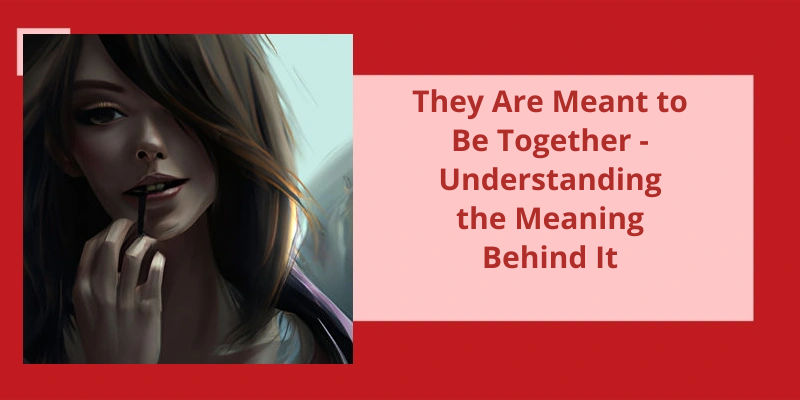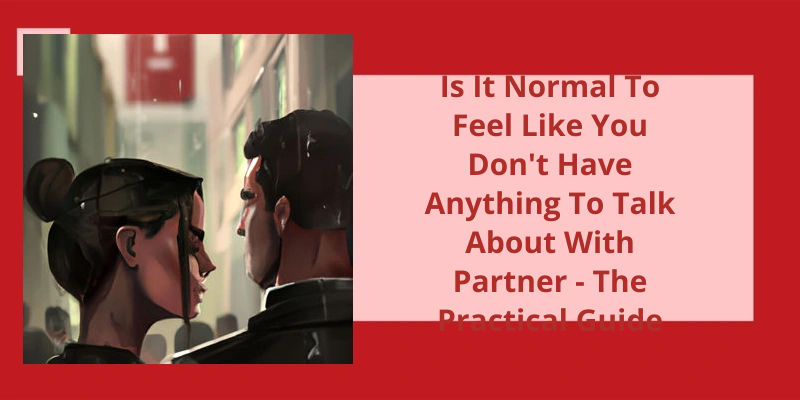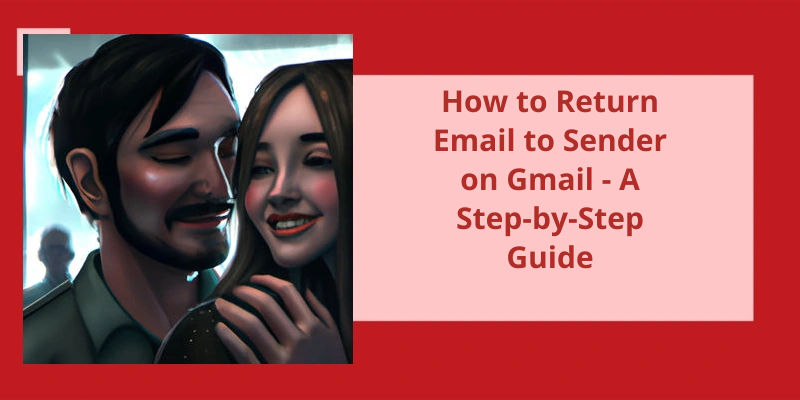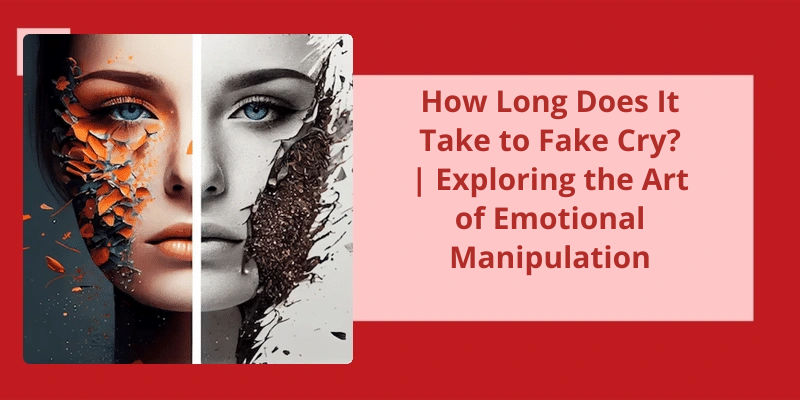Friendships are vital to our social and emotional well-being, providing us with companionship, support, and a shared sense of joy. However, sometimes these relationships can become strained and filled with negative energy, leading to a point where we no longer wish to maintain them. It’s a challenging and heartbreaking decision to come to the realization that we don't want to be friends with our best friend anymore. This might be due to various reasons such as constant conflicts, betrayals, or growing apart. Whatever the cause may be, it’s crucial to understand the significance of this decision and the impact it will have on both parties involved. It’s important to navigate this delicate situation with empathy, reflection, and open communication to minimize hurt and foster personal growth. This article aims to delve into the complexities of ending a friendship, providing insights into why individuals might no longer wish to be friends with their best friend and offering guidance on how to approach this challenging situation in a considerate and compassionate manner.
Can I Stop Being Friends With My Best Friend?
Can I stop being friends with my best friend? Ending a friendship with your best friend can be a hard decision, but if youre unhappy spending time together then it might be the best thing for you both. One way to end your friendship is to distance yourself a bit. Take a few days to get back to them if they contact you, or make excuses why you cant hang out.
It’s a difficult realization to come to, but sometimes friendships change or become toxic. If youre feeling unhappy or unfulfilled in the friendship, it may be time to move on. It’s important to remember that you deserve happiness and a healthy relationship, even if it means letting go of someone who was once close to you.
If spending time with your best friend consistently brings you more stress than joy, it may be time to reevaluate the relationship. Sometimes people grow apart or have different values and priorities, and thats okay. It’s important to prioritize your own mental and emotional health.
While it may be difficult to imagine a life without your best friend, sometimes it’s necessary for your own growth and well-being. It’s okay to outgrow friendships and move on to different chapters of your life. Surround yourself with people who support and uplift you, and don’t be afraid to seek professional help or therapy if youre struggling with the decision.
Ultimately, it’s important to trust your instincts and prioritize your happiness. Remember that it’s okay to set boundaries and prioritize your own well-being. Trust that you’re making the best decision for yourself, even if it means letting go of a friendship that was once important to you.
Understanding the Signs of a Toxic Friendship
Understanding the signs of a toxic friendship can be crucial when you find yourself feeling drained or unhappy in a relationship with your best friend. These signs may include constant criticism, disrespect, manipulative behavior, and an imbalance in the give-and-take of support. It’s important to recognize these signs to protect your emotional well-being and assess whether the friendship is worth maintaining. If you feel like you need to end the friendship, communicate your feelings honestly and assertively, prioritizing your own mental health and happiness.
Moving on from a friendship that’s come to an end can be just as challenging as any other breakup. It’s important to take the time to mourn the loss and process your emotions. Trying to understand their position can provide much-needed clarity, and writing a heartfelt letter can offer closure. Just remember, sometimes it’s best to let it go and focus on the friends who’re still by your side.
How to Deal With Not Being Friends With Your Best Friend Anymore?
Dealing with the realization that you don’t want to be friends with your best friend anymore can be incredibly tough. It can feel like a breakup, a loss of a significant relationship in your life. To process this, it’s important to first accept that theyre no longer your best friend and allow yourself to grieve the loss.
Just like any breakup, taking the time to mourn the loss is crucial. Allow yourself to feel the emotions that come with it – sadness, anger, confusion, or even relief. Give yourself permission to grieve this significant change in your life. It’s normal to feel a mix of emotions during this process.
While coming to terms with the end of your friendship, try to understand their position as well. Reflect on why the friendship may have changed and understand that both parties may have contributed to the disconnect. Sometimes growth and change can lead to drifting apart, and thats okay.
Writing a letter to your former best friend can be a cathartic way to express your emotions and thoughts. This doesn’t necessarily mean you’ve to send it to them. It can serve as a therapeutic exercise to put your feelings into words and gain closure for yourself.
It’s important to let go of the negative emotions and resentment associated with the end of the friendship. Holding onto anger or the desire for revenge won’t serve you in the long run. Instead, focus on accepting the reality and moving forward. Letting go allows you to open up space for new experiences and relationships to flourish.
Lastly, take this opportunity to appreciate the friends you still have around you. They may not be your former best friend, but they’re still there for you. Nurture those connections and value the meaningful relationships that are still present in your life. Surrounding yourself with positive people who support and uplift you can help you navigate this difficult transition.
Source: I don’t feel close to my best friend anymore. How can I let …
I appreciate our friendship and the value you place on it, but there’s something that’s been bothering me lately. It seems that there might be a misunderstanding regarding our level of friendship, specifically regarding the notion of you being my best friend. I wanted to discuss this with you in order to maintain the honesty and openness that defines our relationship.
How Do You Say You’re Not My Best Friend?
Having close friendships is a wonderful thing, and I value our connection. It’s an honor that you consider me your best friend, and I appreciate the bond we share. However, I find myself in a situation where I feel uncomfortable. Youve been going around telling others that youre my best friend, and while I value our friendship, I don’t view you in the same way.
It’s important for me to be honest with you because I believe that open communication is the foundation of any healthy relationship. I want you to know that I consider you a good friend and appreciate the time we spend together. However, when you proclaim yourself as my best friend, it puts pressure on our friendship and creates expectations that I may not be able to meet.
Friendship is about mutual understanding and respect for each others boundaries. While I genuinely care about you and enjoy our time together, I don’t feel the same level of connection as you do. It’s important for me to honor my own feelings and be transparent about my perspective. I hope you can understand and respect my point of view.
It’s not easy for me to have this conversation, as I don’t want to hurt your feelings or damage our friendship. I hope we can continue being friends even though we may not be each others best friends. I value our connection and the positive experiences we’ve shared. Lets focus on nurturing our friendship in a way that feels comfortable for both of us so that we can continue to support and care for each other.
Remember that friendship isn’t defined by labels or titles; it’s about the quality of the bond we share. We’ve our own unique dynamics, and I believe that we can maintain a meaningful friendship without the pressure of being best friends. Lets continue to be there for each other and enjoy the moments we spend together without any expectations or labels.
How to Prioritize and Balance Multiple Friendships
- Reflect on your values and what you want in friendships.
- Consider the quality and depth of each friendship.
- Identify your closest and most significant friendships.
- Communicate with your friends about your time constraints.
- Be honest and prioritize the friendships that bring you the most joy.
- Maintain regular communication with your closest friends.
- Make time for group activities to balance multiple friendships.
- Set boundaries and make sure you’ve time for yourself.
- Recognize that it’s okay to prioritize and invest more in certain friendships.
- Nurture the friendships that you value the most.
- Do your best to manage your time and commitments effectively.
- Remember that friendships evolve and change over time.
Ending a friendship with your best friend can be a difficult and emotional decision. But sometimes, it becomes necessary for your own well-being and growth. Before taking any steps, it’s important to reflect on the relationship and understand why you’ve allowed this person to be a part of your life for so long. Once you’ve gained clarity, it’s time to have an open and honest conversation with your friend. Use “I” statements to express how you’ve been feeling and explain your reasons for ending the relationship.
How Do I End My Friendship With My Best Friend?
Ending a friendship with your best friend can be a difficult and emotional decision. It’s important to take some time to reflect on your relationship and understand why you’ve allowed this person to stay in your life for so long. Maybe your values, interests, or priorities have shifted over time, or perhaps you’ve realized that the friendship has become toxic or one-sided.
Confronting your friend is never easy, but it’s essential to be clear and honest with them about how youve been feeling and why you believe it’s time for the relationship to end. It’s important to avoid placing blame or attacking them personally. Instead, try to express your emotions using “I” statements. This approach helps to avoid putting the other person on the defensive and allows you to communicate your feelings in a gentler and more constructive way.
For example, instead of saying, “You never listen to me and only care about yourself,” you could say, “I feel unheard and unvalued in our friendship. I’ve noticed that our conversations always revolve around your problems, and I don’t feel like I’ve a voice in our relationship.”
It’s important to remember that ending a friendship is a personal decision, and you don’t owe anyone an explanation if you arent comfortable providing one. However, if you choose to confront your friend, it can be helpful to have a calm and honest conversation. This will allow both of you to express your thoughts and feelings, and it may even provide an opportunity for growth and understanding, even if the friendship ultimately ends.
Lastly, give yourself time to heal after ending a friendship. It’s normal to feel a mixture of emotions, including sadness, guilt, and relief. Surround yourself with supportive people who can offer guidance and understanding during this transitional period. Focus on self-care and engage in activities that bring you joy and fulfillment.
It’s important to remember that our social circles play a significant role in our lives, influencing our emotions, behaviors, and overall well-being. So, it’s perfectly understandable to not want to be friends with someone anymore. After all, friendships should be built on mutual respect, trust, and compatibility. It’s okay to prioritize our own happiness and choose people who genuinely bring positivity into our lives.
Is It OK to Not Want to Be Friends With Someone Anymore?
Friendships, just like any other relationship, are based on mutual connection, trust, and respect. It’s natural for our feelings towards someone to change over time, and there may come a point when we realize we no longer want to be friends with someone who was once our best friend. And thats okay. It’s important to surround ourselves with people who positively contribute to our lives and make us happy.
Recognizing that we want to end a friendship doesn’t automatically make us a bad person. It’s about prioritizing our own well-being and mental health. If a friendship becomes toxic, emotionally draining, or consistently one-sided, it’s perfectly valid to want to distance ourselves. We owe it to ourselves to maintain healthy and fulfilling relationships.
Moreover, no one is obligated to be friends with everyone. We all have our own preferences, interests, and personalities, and it’s simply unrealistic to expect that we can befriend and maintain connections with everyone we encounter. It’s a personal choice, and it’s crucial to surround ourselves with people we genuinely enjoy and connect with.
Sometimes, we outgrow certain friendships as we grow and change as individuals. Our values, interests, and priorities may no longer align, making it difficult to sustain a meaningful connection. It doesn’t mean that the friendship was a failure; it’s just a natural part of life. We should embrace personal growth and allow ourselves to let go of relationships that no longer serve us.
Lastly, ending a friendship doesn’t necessarily mean harboring negativity or animosity towards the other person. It’s possible to part ways amicably and with mutual understanding. It’s about respectfully expressing our feelings and asserting our need for personal growth or change. Not every friendship is meant to last forever, and thats okay. What matters most is that we prioritize our own well-being and surround ourselves with people who genuinely bring positivity and joy into our lives.
Signs of a Toxic Friendship
A toxic friendship is characterized by a negative and unhealthy dynamic between two people. Signs of a toxic friendship may include constant criticism, lack of support, manipulation, jealousy, and disrespect. If you find yourself feeling drained, unhappy, or constantly undermined in your friendship, it may be a sign that it’s toxic. It’s important to prioritize your own well-being and set boundaries if necessary.
Friendships, like all relationships, can evolve and change over time. While it can be difficult to let go of a best friend, sometimes it may be necessary for personal growth and overall happiness. Recognizing that friendships, like everything else, have a natural ebb and flow can provide solace and reassurance during this process. It’s essential to remember that nothing is set in stone, and letting go can open doors to new connections and experiences.
Is It OK to Let Go of Your Best Friend?
Friendships, just like any other relationship, can evolve and change over time. While it may be difficult to come to terms with, sometimes letting go of your best friend is the right decision. It’s okay to acknowledge that you’ve grown apart and that the friendship no longer brings you happiness or fulfillment.
Investing time and energy into a friendship is important, but it shouldn’t be the sole reason for holding onto a relationship that no longer serves you. Just because you’ve shared countless memories and experiences with someone doesn’t mean you should continue down a path that feels stagnant or unfulfilling.
The idea of friendships being forever can often lead to feelings of guilt and obligation. However, it’s crucial to prioritize your own well-being and happiness. If a friendship has become toxic or draining, it may be time to let go and move on. Surrounding yourself with positive influences and people who uplift you is essential for personal growth and happiness.
Although it can be painful and emotional, ending a friendship doesn’t mean it was a failure. It simply means that the dynamic has run it’s course and it’s time to part ways amicably. Remember, it’s okay to prioritize your own well-being and make choices that are in your best interest, even if it means letting go of a long-standing friendship.
Signs That a Friendship Has Become Toxic or Unhealthy
- Constant criticism and belittling
- Unbalanced and one-sided conversations
- Feeling drained and exhausted after spending time together
- Frequent manipulation and control
- Lack of trust and honesty
- Ignoring boundaries
- Jealousy and competition
- Constant negativity and pessimism
- Feeling obligated or guilty in the friendship
- Isolation from other friends and loved ones
- Emotional or physical abuse
- Feeling unheard and invalidated
- Constant drama and conflict
- Difficulty in expressing oneself freely
- Fear of speaking up or disagreeing
- Lack of support or empathy
- Consistently feeling used or taken advantage of
- Drastic changes in behavior or values
- Consistently feeling unhappy or unfulfilled
- Realizing the friendship is one-sided and not reciprocal
Conclusion
In conclusion, navigating the complexities of friendship can be challenging, and there may come a time when we question the dynamics of our closest relationships. As we grow and evolve as individuals, it’s natural to outgrow certain friendships or realize that they no longer bring us joy and fulfillment. Recognizing the signs that we no longer want to be friends with our best friend can be difficult but ultimately necessary for our own emotional well-being. It’s crucial to prioritize our own happiness and surround ourselves with people who support and uplift us. Although the decision to end a friendship is never easy, it’s important to remember that we deserve genuine connections that bring us happiness and growth. Trusting our instincts and having the courage to move on from toxic or unfulfilling relationships is a crucial step in our personal development and finding true happiness.






